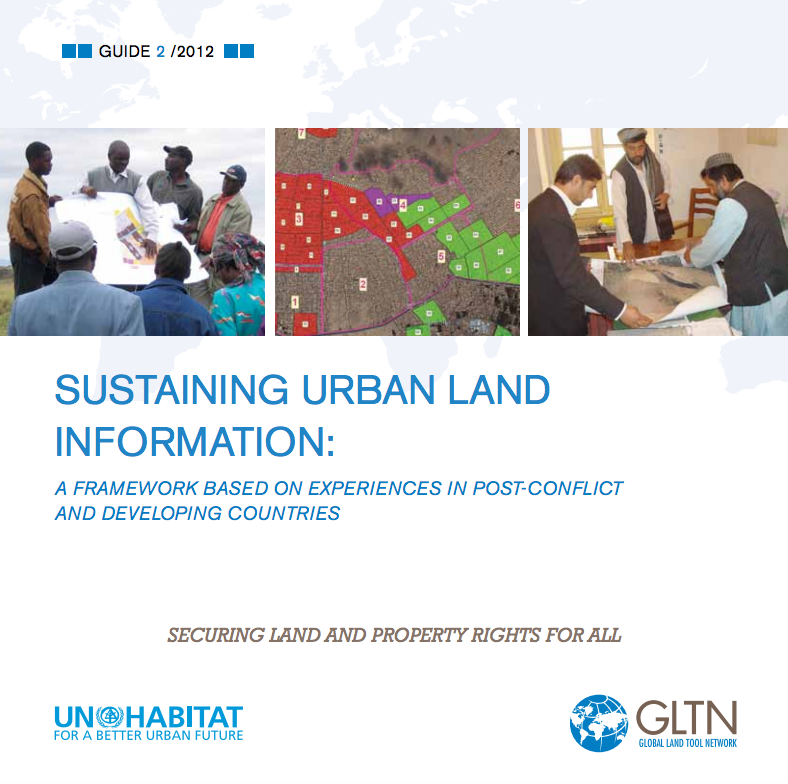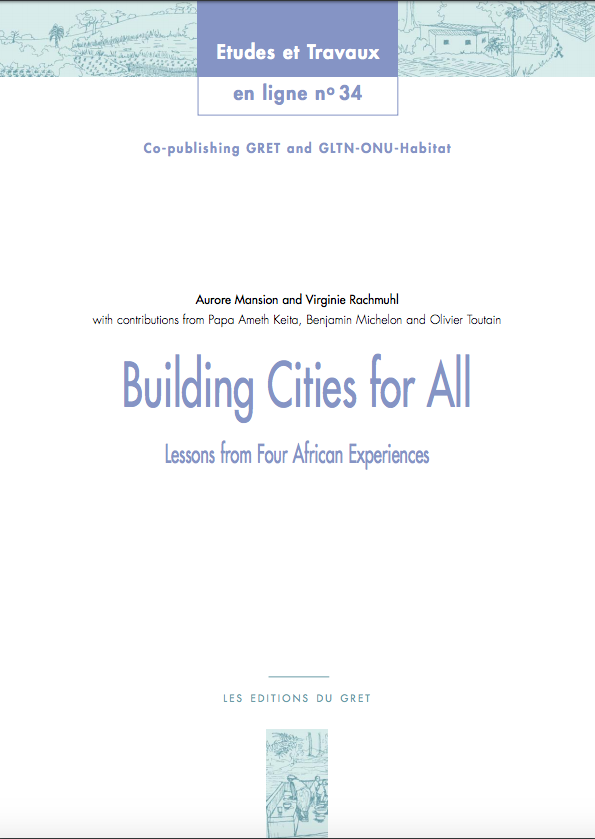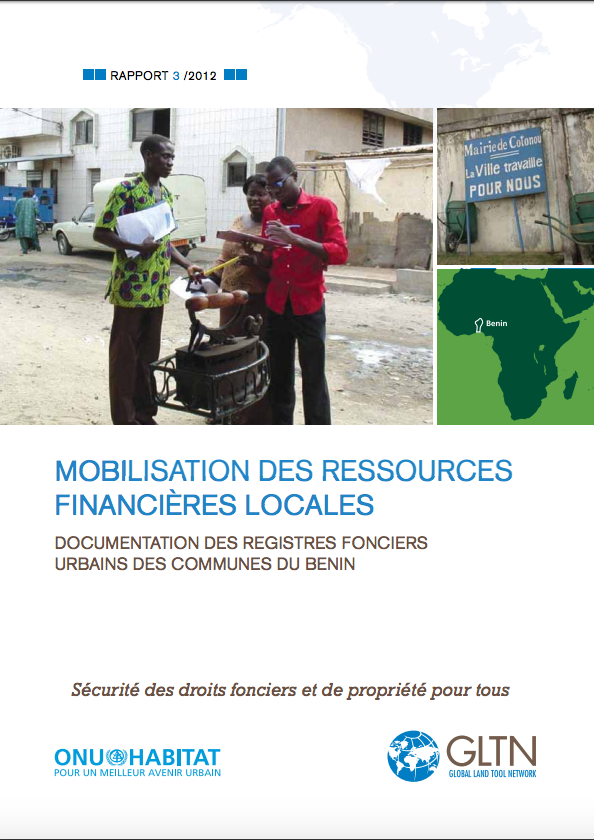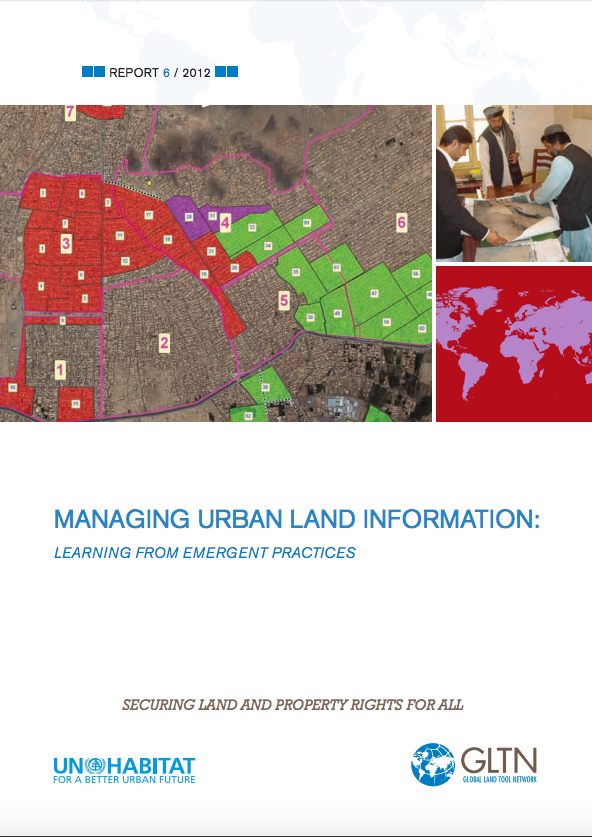Focal point
Location
The Global Land Tool Network (GLTN) is an alliance of global regional and national partners contributing to poverty alleviation through land reform, improved land management and security of tenure particularly through the development and dissemination of pro-poor and gender-sensitive land tools.
Secure land tenure and property rights are fundamental to shelter and livelihoods as well as the realisation of human rights, poverty reduction,economic prosperity and sustainable development.
The Global Land Tool Network (GLTN) main objective therefore is to contribute to poverty alleviation and the Millennium Development Goals through land reform, improved land management and security of tenure.
UN-Habitat through GLTN continues to work towards this with partners who include international civil society organizations, international finance institutions, international research and training institutions, donors and professional bodies.
Most developing countries use conventional land administration systems which cover less than 30 per cent of the country, leaving up to 70 per cent of citizens looking to informal and/ or customary approaches for their tenure security.
While there are many examples of good land policies, there are few policies that have been fully implemented due to lack of pro-poor, gendersensitive and largescale land tools. Further, conventional land titling approaches have largely failed to deliver their expected results since existing technical solutions are too expensive, inappropriate for the range of tenure found in developing countries, unsustainable financially or in terms of available capacity, and instead a range of land tenure options is more appropriate.
Core Values
Consequently, GLTN's core values and principles are founded in the development of land tools that are:
- Pro poor;
- Equitable;
- Sustainable;
- Affordable;
- Systematically large scale /scalable; and,
- Gender-sensitive, while taking into consideration:
- Good governance;
- Subsidiarity; and,
- The Continuum of Land Rights.
GLTN Objectives and Mandate
GLTN has developed a global partnership on land issues pulling together global partners, as well as many individual members. These partners include international networks of civil society, International Finance Institutions, international research and training institutions, donors and professional bodies. It continues to take a more holistic approach to land issues by working towards the following objectives:
- The establishment of a continuum of land rights, rather than just focus on individual land titling
- Improving and developing pro-poor land management, as well as land tenure tools
- Unblocking existing initiatives Assisting in strengthening existing land networks
- Supporting in the development of gendered land tools which are affordable and useful to grassroots
- Improving the general dissemination of knowledge about how to improve security of tenure
- Improving the general knowledge dissemination on the improvement of security of tenure
Resources
Displaying 231 - 235 of 286Regional Learning Workshop on Land and Natural Resources Tenure Security
This publication is the summary of the proceedings of the Regional Learning Workshop on 'Land and Natural Resources Tenure Security' held in Nairobi, Kenya from 29-31 May 2012 as jointly organized by UN-Habitat/Global Land Tool Network and International Fund for Agricultural Development (IFAD). The aim of the workshop was to deepen the understanding of land and natural resources tenure security issues and to identify opportunities to strengthen land tenure security and land access of the rural poor and marginalized groups in sub-Saharan Africa.
Sustaining Urban Land Information: A framework based on experiences in post-conflict and developing countries
This guide will assist land experts, government officials, donors and others involved in land information projects to avoid the costly development of an urban land information system that is too complicated, cannot be sustained or fails to support urban land management. The framework is based on various case studies that are contained in Urban Land Information Management, a report that is available at www.gltn.net.
Building Cities for All - Lessons from four African experiences
En Afrique, pres de 500 millions de personnes resident aujourd'hui dans des bidonvilles. La plupart de ces quartiers ne sont pas << en regle >> en matiere de foncier, d'habitat, d'amenagement ou de services. Les operations urbaines constituent un outil privilegie pour ameliorer les conditions de vie des habitants des quartiers precaires. Malgre des progres indeniables realises dans la derniere decennie, le bilan reste mitige, notamment en termes d'impacts social, economique, urbain et environnemental.
Mobilisation des ressources financières locales: Documentation des registres fonciers urbains des communes du Benin
Cette publication, Mobilisation des ressources financieres locales: documentation des registres fonciers urbains des communes du Benin, retrace le parcours des Registres Fonciers Urbains (RFU) tels qu'experimentes dans les communes beninoises depuis plus de deux decennies. Ce document constitue une contribution majeure a la connaissance des RFU. Il ressort de cette publication que les RFU mis en place dans presque 20 communes au Benin ont prouve leur valeur et leur popularite dans leur capacite a mobiliser les ressources financieres necessaires au meilleur fonctionnement des communes.
Managing Urban Land Information: Learning from emergent practices
Managing Urban Land Information draws lessons from various experiences in post-conflict and developing countries. It is intended for land experts, government officials, donors and others involved in land information projects to avoid the costly development of an urban land information system that is too complicated, cannot be sustained or fails to support urban land management.









